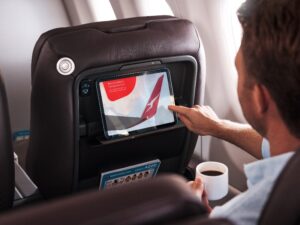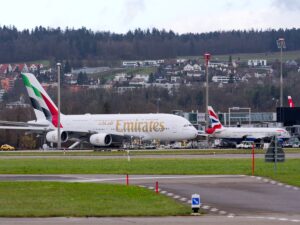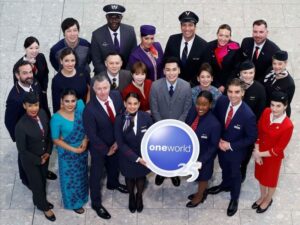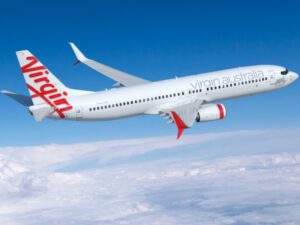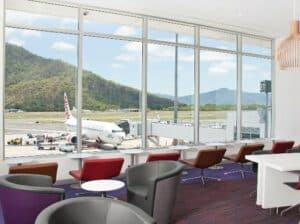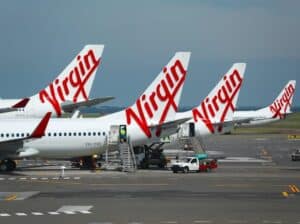
When Ansett Australia collapsed in 2001, Ansett Global Rewards points became instantly worthless. This may have happened 19 years ago, but many former Ansett members have long memories. It’s part of the reason that there has been a rush to cash out Velocity Frequent Flyer points over the past few weeks as Virgin Australia’s financial situation has deteriorated.
There are certainly similarities between Virgin Australia entering voluntary administration in 2020 and the plight of Ansett in 2001. But the good news is that this is not a repeat of what happened to Ansett. The outcome is likely to be better.
As Treasurer Josh Frydenberg said yesterday, “This is not liquidation. This is not Ansett.”
Virgin Australia continues to fly – albeit to a reduced COVID-19 schedule – and Velocity points are likely to retain value.
“Today’s catalyst is the impact of the coronavirus on air travel, back then it was the shock of the 9/11 terrorist attacks in the United States. In the months leading to both events, both airlines were already in financial difficulty and unable to secure government bailout,” Australian Frequent Flyer founder Clifford Reichlin said.
Lessons from the Ansett collapse have been learned. In this article, we explore what’s different about the current situation with Virgin Australia and Velocity points.
Velocity Frequent Flyer is a separate business to Virgin Australia
Many Ansett Global Rewards members will remember losing all of their points following the sudden collapse of Ansett. The administrators froze the Global Rewards program and points could not be redeemed, nor earned, for flights on Ansett Mark II or Star Alliance partners.
Most Ansett Global Rewards members did not foresee the airline going bankrupt and had not been concerned about losing their points prior to that time.
Gordon Graham was one of those members. He had 253,000 Global Rewards points and a lifetime Ansett Golden Wing Club membership – both of which became worthless overnight.
“We were not given any opportunity to use the points”, Graham said. “We had no options, they just automatically lapsed.”
Anyone that held Global Rewards points at the time was treated as an unsecured creditor and went straight to the bottom of the queue. (For more information about how the Ansett collapse affected frequent flyers at the time, you can view the October 2001 issue of the Australian Frequent Flyer Gazette from our archive.)
Having learnt from the fallout of Ansett, Virgin Australia set up the Velocity Frequent Flyer loyalty program as a separate business entity. This means Velocity points are at less risk of losing value should Virgin Australia cease flying.
“There is a trust in place that has cash backing for the points,” Virgin Australia CEO Paul Scurrah said yesterday.
Phil Gunter ran the Velocity Frequent Flyer program between 2006 and 2013. He says that it’s much easier to treat Velocity separately to the airline, Virgin Australia, as both businesses have separate Profit & Loss statements and balance sheets.
“Ansett was an internal business unit and so when the airline went, so did the frequent flyer program,” Gunter said.
Reforms to loyalty program accounting standards in 2008
In 2008, significant changes were made to the way in which loyalty programs account for unredeemed points under a reform known as IFRIC 13 (which has since been superseded by IFRIC 15).
“Back in 2001, Ansett would have allocated a tiny amount to each point issued and so there was no cash or other asset available to pay for the liability of the points – therefore points were worthless in the accounts, making it much harder to pay for any rewards on anyone other than Ansett,” Gunter said.
“Velocity Frequent Flyer (as with most other programs today) must put aside enough cash to pay for the expected cost of the reward. This value sits on the Balance Sheet ready to pay for rewards.
“Given Velocity Frequent Flyer is wholly owned by Virgin Australia, there may be complex and competing claims for Virgin Australia’s assets (of which the cash held in Velocity Frequent Flyer is one), but there should be some funds available to pay for future rewards,” he added.
Gunter says that Velocity Frequent Flyer also has a huge range of program partners other than Virgin Australia, which make it less reliant on the airline. Contracts with these partners, which include most Australian credit card providers and other airlines, adhere to IFRIC 15 principles.
Phil Gunter was a guest on Episode 34 of the AFF on AIR podcast, where he explained why Velocity points will likely remain relatively safe.
Velocity redemptions paused, but points retain value
Unlike when Ansett collapsed, Velocity Frequent Flyer members have had warning that the airline has been in financial difficulty for some time already. Indeed, many members have already redeemed their Velocity points over the past couple of months. (This, in turn, worsened Virgin Australia’s financial standing and resulted in measures such as the suspension of point transfers to Singapore Airlines KrisFlyer.)
When Virgin Australia entered voluntary administration, it temporarily paused the ability to redeem Velocity points. This is of course concerning, but Velocity Frequent Flyer is not itself in administration and you can still earn points. Virgin Australia intends to resume allowing points to be redeemed when things return to normal. This will be in at least four weeks from now, but could be longer.
As Virgin Australia’s CEO predicted yesterday, there is a chance that the airline comes out of this crisis “leaner, stronger and fitter”. This would be a great outcome, and could also mean few – if any – changes to the way Velocity points are earned and redeemed in the future.
Even if Virgin Australia doesn’t survive, Velocity Frequent Flyer program is a profitable business and a valuable asset that could be sold to a third party. So it’s unlikely that the value of existing Velocity points will be wiped. But for now, we’ll have to wait and see; many things are still uncertain.
Virgin Australia continues flying, bookings & travel credits honoured
Ansett was placed into voluntary administration on 12 September 2001.
“Two days later, the administrator grounded the airline on the grounds that it didn’t have sufficient cash to continue operations. At this stage the future of Virgin is unclear and the Australian government hasn’t ruled out assistance if it can’t attract private investment,” Clifford Reichlin said.
For now, Virgin Australia continues flying and bookings are being honoured. The airline has also specifically said that Virgin travel bank credits retain their value and can still be used to book Virgin Australia flights.
There is a chance that things could change down the track of the company goes into liquidation or the administrators decide to somehow void the debt owed to Virgin’s creditors. But for now, things are not looking as dire as they were for Ansett.
It’s not yet clear what will happen to Virgin Australia Lounge memberships. We’ve approached Virgin Australia for comment.


